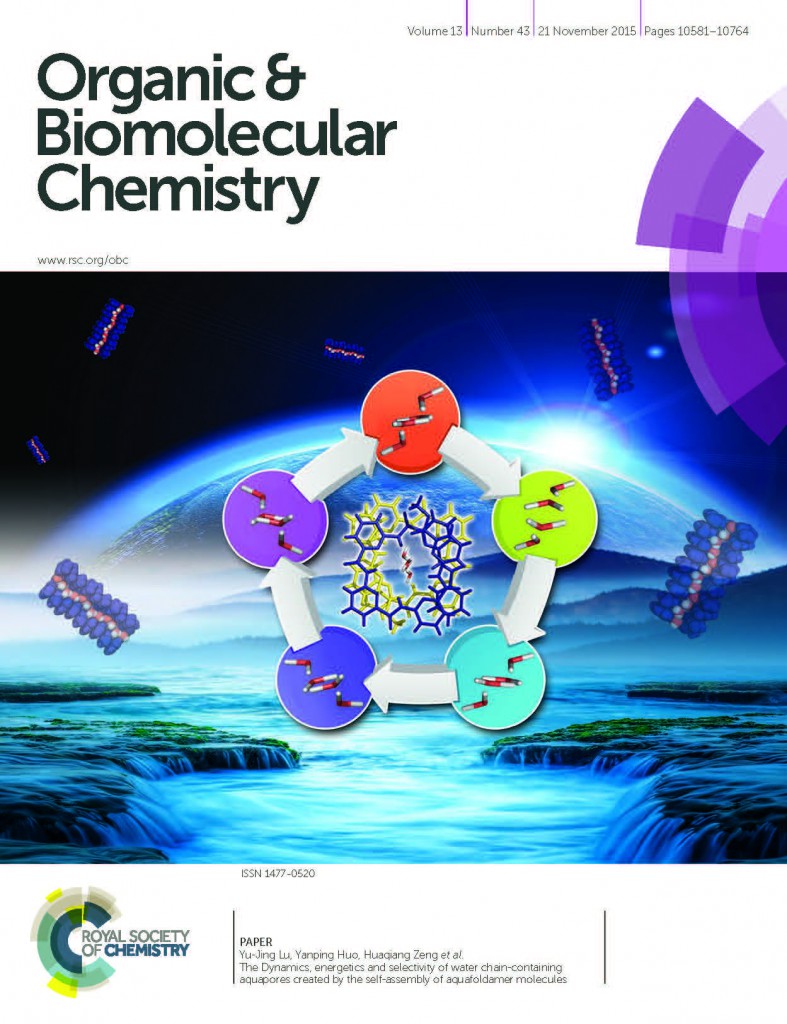The articles below are the most read Organic & Biomolecular Chemistry articles in July, August and September 2015.
Linear and star-shaped pyrazine-containing acene dicarboximides with high electron-affinity
Jinjun Shao, Jingjing Chang and Chunyan Chi
DOI: 10.1039/C2OB25680K, Paper
Recent synthetic additions to the visible light photoredox catalysis toolbox
Ricardo A. Angnes, Zhou Li, Carlos Roque D. Correia and Gerald B. Hammond
DOI: 10.1039/C5OB01349F, Review Article
Biomineralization-inspired synthesis of functional organic/inorganic hybrid materials: organic molecular control of self-organization of hybrids
Atsushi Arakaki, Katsuhiko Shimizu, Mayumi Oda, Takeshi Sakamoto, Tatsuya Nishimura and Takashi Kato
DOI: 10.1039/C4OB01796J, Review Article
Decarboxylative functionalization of cinnamic acids
Arun Jyoti Borah and Guobing Yan
DOI: 10.1039/C5OB00727E, Review Article
Design and synthesis of analogues of natural products
Martin E. Maier
DOI: 10.1039/C5OB00169B, Review Article
Anatomy of gold catalysts: facts and myths
Beatrice Ranieri, Imma Escofet and Antonio M. Echavarren
DOI: 10.1039/C5OB00736D, Review Article
Copper-catalyzed trifluoromethylation of alkenes: synthesis of trifluoromethylated benzoxazines
Sadhan Jana, Athira Ashokan, Shailesh Kumar, Ajay Verma and Sangit Kumar
DOI: 10.1039/C5OB01196E, Communication
Synthesis of substituted pyrenes by indirect methods
Juan M. Casas-Solvas, Joshua D. Howgego and Anthony P. Davis
DOI: 10.1039/C3OB41993B, Review Article
Enantioselective cooperative catalysis
Suleman M. Inamdar, Valmik S. Shinde and Nitin T. Patil
DOI: 10.1039/C5OB00986C, Review Article
Organic synthetic transformations using organic dyes as photoredox catalysts
Shunichi Fukuzumi and Kei Ohkubo
DOI: 10.1039/C4OB00843J, Review Article











